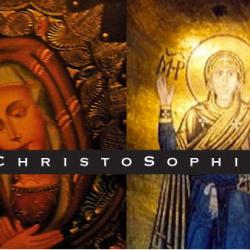 By Adam McHugh
By Adam McHugh
I've threatened to quit evangelicalism a lot. Over the years I have stood in the evangelical unemployment line on many occasions, but somehow I have never made it to the front to pick up my heretic's severance pay.
Every time I have resolved to leave, I have encountered other evangelicals who are asking the same questions that I am. Well, to be more honest, my disenchantment and my questions haven't always been thoroughly formed. I have experienced a groaning in my soul that something isn't quite right, that some significant piece is missing, and others have helped me put words and questions to those rumblings.
In the past, teachers have helped me express my frustration over the often overly-narrow and party-specific political agenda of evangelicalism. At other times, people have helped me understand that to follow Jesus is not just to save souls but to participate in God's ongoing redemption of all creation and all relationships.
Most recently, I have been disillusioned with the hyperactive and overtly extroverted climate of many pockets of American evangelicalism. This time I have tried to be a voice from within the movement, publishing Introverts in the Church and dialoguing with many others who have similar questions.
In my research for my book, I had the opportunity to spend time with some remarkable figures of the past -- the Desert Fathers and Mothers, Saint Benedict, and Saint Patrick in the early centuries all the way to John Calvin and Jonathan Edwards and Mother Teresa in more recent history. I was reminded that, in contrast to our present age, for much of church history many who have had an introverted bent have been numbered among the greatest heroes of the faith.
It's been these conversations, both with colleagues and with brilliant figures of past centuries, that have kept me in the evangelical fold. These dialogues have not drawn me out of evangelicalism but have pushed me toward a deeper and richer form of evangelical thought and practice. Thus, when I ponder the future of evangelicalism, I consider it essential that we continue to expand the breadth of our conversation partners.
It's not a secret that the tides of evangelical influence in our culture are waning. I see two possible responses to such a trend: first, we back into a corner, throw rocks, and shout louder and louder as we lapse into obscurity. This is a victim mentality, in which we close ourselves off and blame others for our fate. Or, second, we use our loss of power as an opportunity to begin listening to others and to draw together as a family of faith.
In recent decades, many churches have noticed that their cultural power is diminished, and they often have gone in one of these two directions. Some have tried to regain their power by lobbying harder, shouting louder, and trying to buy more political currency. They have become dogmatic and polemical, attempting to speak over their detractors. Other churches, however, have tried to pay attention to the vast changes that have occurred in the culture. They have listened to the people in their local communities, and to broader cultural trends, and have embraced the adventure of ministry in a post-Christian culture.
A key question for the future of evangelicalism is this: Will our loss of power pull us apart or draw us together? Will churches and denominations insulate themselves, or will we open ourselves to other believers from different traditions and ages? Will we use this as an opportunity to humble ourselves, listen to others, and repent of our thinking that our tradition is the true and perfect expression of the gospel of Jesus? Will we dare to learn from Catholics and Anglicans, from Christians in Africa and South America and Asia, from believers of past centuries and cultures, from Calvinists or Arminians or even, dare-I-say-it, from mainline Protestants?
My hope is that our loss of cultural power will provide an occasion for us to lay down our arms. The world is tired of Christian in-fighting, and so are a lot of us. I am encouraged that some evangelical scholars and writers have begun to emphasize what unites us with other Christian traditions over what divides us. They are doing so by listening to the voices of the past and unearthing the historic creeds that comprise the "Great Tradition" of the church, shared by Christians across all times and places.




